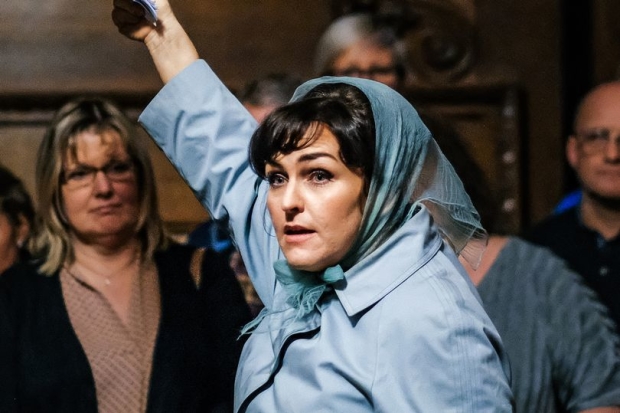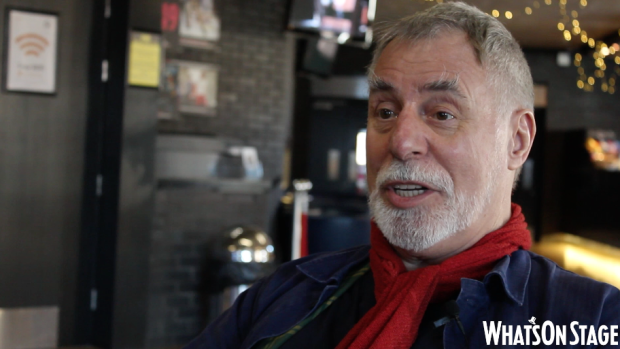Review: The Last Testament of Lillian Bilocca (Guildhall, Hull)

© Andrew Billington
The Last Testament of Lillian Bilocca, staged in Hull’s Guildhall by Hull Truck Theatre and Hull UK City of Culture, is without doubt a major achievement, but exactly what sort of achievement is difficult to define. Maxine Peake‘s script is almost without dialogue and there is little conventional characterisation. It is as much a commemoration as a play, a demonstration, an immersive experience.
In 1968 Lillian Bilocca and her "headscarved revolutionaries" organised a protest against the dangerous conditions under which Hull trawlermen went to sea: when their petition began two trawlers had recently sunk with great loss of life and a third went down soon afterwards. Their direct methods caused Lillian to be blacklisted by the owners and were not always popular – even with their menfolk – but they were successful and new safety regulations came into operation.
The production by Sarah Frankcom and Imogen Knight takes every advantage of a wonderful site, a grand Edwardian building with opulent public rooms and endless corridors that, with the assistance of dusky lighting and throbbing trawler engines through half-open doors, become decidedly eerie. The Hall is full of noises, with the final hymn of solidarity filling a barely-lit room before fading, it seems to echo through the walls.
The evening begins in a ballroom with the versatile Adrian McNally and the Unthanks supplying ghostly music for the half alive couples, shuffling around at the trawler owners’ annual self-congratulatory ball. Two old buffers in dinner jackets sit on the landing outside, sipping their brandy in slow motion. The tempo changes as we move on to the Three Day Millionaires, the trawlermen on shore, dressed to kill, dancing, drinking, chatting up the girls and, inevitably, fighting.
In the Council Chamber a trawlerman’s wife and child mime movingly in a simple kitchen set while the audience listens in on headphones to an eloquent piece of poetic realism, framed by crackling radio messages from the North Sea. In a committee room, the headscarved revolutionaries hold a pre-protest meeting filled with passionate personal testimonies. Eventually, the audience assembles in the Banqueting Hall for the Silver Cod Dinner: sadly the rumpled napkins show that the meal is over, but the speeches are still to come, at least until the women’s dramatic protest.
The programme lists a cast of ten (and a community company of 20-plus) but ascribes no parts to individual actors. This seems appropriate: individuality is not important, all the women deliver impassioned speeches with the same conviction. What is impressive is the sense of unified purpose in the long list of technical wizards (Chris Davey and Pete Malkin, respectively, are responsible for lighting and sound), the excellent community company who all seem to have mastered the art of stillness and a production team with an impeccable eye for detail, even down to the place-cards at the ship-owners’ dinner.
The Last Testament of Lillian Bilocca runs at The Guildhall, Hull until 18 November.



















